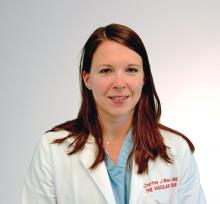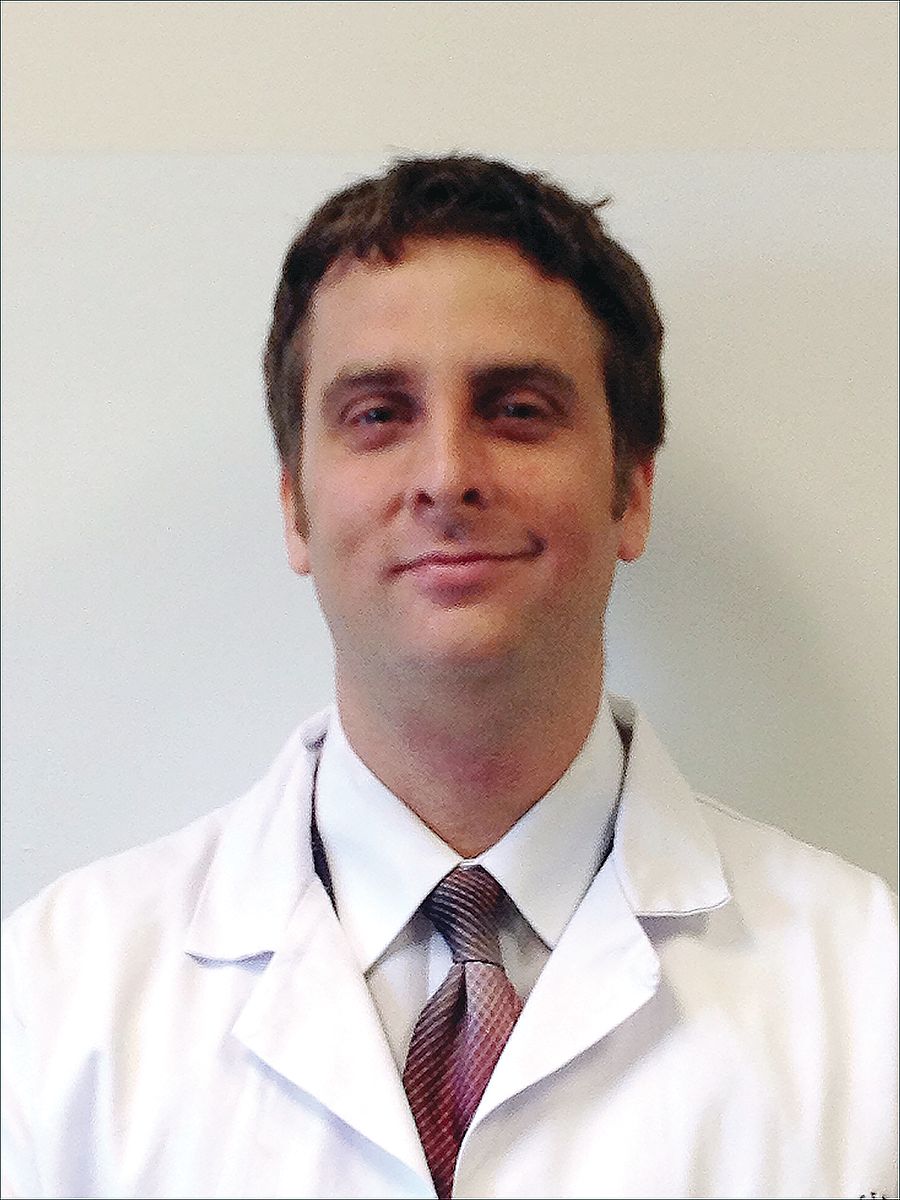User login
Young vascular surgeons looking to make their marks and balance their lives, as well as more experienced surgeons seeking tips for more effective practice and career management, should consider the session led by Jeffrey Siracuse, MD, of Boston Medical Center, and Courtney Warner, MD, of Albany Medical College, Saratoga Springs, N.Y.
“This will be a great and informative session that, although geared toward young surgeons, will be highly useful for surgeons of all experience levels,” Dr. Siracuse said of the session.
“Topics include building a successful academic practice, building a successful private practice, how to work with other specialties, how to negotiate a contract, how to improve one’s current job, and more on the business side of medicine,” said Dr. Siracuse. The discussions will be followed by a Q&A panel.
The first job after a fellowship is often the first “real job” of any type that new surgeons have had, Dr. Siracuse said. Medical school offers many things, but young surgeons may be underprepared for how to negotiate for one’s first surgical position and how to set oneself up for success, he explained. That said, the keys for success are significantly different for surgeons entering an academic setting or private practice, he noted.
The session kicks off with presenters addressing both types of practice.
Faisal Aziz, MD, of Penn State Hershey College of Medicine, Hershey, addresses the “Top 10 Roadblocks to a Successful Academic Practice,” and Scott Berman, MD, of Carondelet Medical Group in Tucson, Ariz., takes on the “Top 10 Roadblocks to a Successful Private Practice.”
Some subjects likely to prompt lively discussion among seasoned veteran surgeons as well as novices include how to effectively negotiate and renegotiate contracts. The contracts presentation, “Top 10 Tips on Negotiating Contracts and Other Things I Learned in Business School,” is scheduled to be given by Bruce Perler, MD, of Johns Hopkins University in Baltimore, Md.
In addition, surgeons at all levels of experience can benefit from tips on how to work with individuals in other specialties, especially if one is competing with them for patients and cases, Dr. Siracuse said. Brandon Propper, MD, of San Antonio Military Medical Center, Texas, steps up to the plate with his “Top 10 Ways to Work With Other Specialties.”
The Practice Management Tips and Tricks for Young Vascular Surgeons session is recommended by the Community Practice Committee and the Young Surgeons Committee.
Friday, June 22
1:30 – 3:00 p.m.
HCC, Room 311
C5: Practice Management Tips and Tricks for Young Vascular Surgeons
Young vascular surgeons looking to make their marks and balance their lives, as well as more experienced surgeons seeking tips for more effective practice and career management, should consider the session led by Jeffrey Siracuse, MD, of Boston Medical Center, and Courtney Warner, MD, of Albany Medical College, Saratoga Springs, N.Y.
“This will be a great and informative session that, although geared toward young surgeons, will be highly useful for surgeons of all experience levels,” Dr. Siracuse said of the session.
“Topics include building a successful academic practice, building a successful private practice, how to work with other specialties, how to negotiate a contract, how to improve one’s current job, and more on the business side of medicine,” said Dr. Siracuse. The discussions will be followed by a Q&A panel.
The first job after a fellowship is often the first “real job” of any type that new surgeons have had, Dr. Siracuse said. Medical school offers many things, but young surgeons may be underprepared for how to negotiate for one’s first surgical position and how to set oneself up for success, he explained. That said, the keys for success are significantly different for surgeons entering an academic setting or private practice, he noted.
The session kicks off with presenters addressing both types of practice.
Faisal Aziz, MD, of Penn State Hershey College of Medicine, Hershey, addresses the “Top 10 Roadblocks to a Successful Academic Practice,” and Scott Berman, MD, of Carondelet Medical Group in Tucson, Ariz., takes on the “Top 10 Roadblocks to a Successful Private Practice.”
Some subjects likely to prompt lively discussion among seasoned veteran surgeons as well as novices include how to effectively negotiate and renegotiate contracts. The contracts presentation, “Top 10 Tips on Negotiating Contracts and Other Things I Learned in Business School,” is scheduled to be given by Bruce Perler, MD, of Johns Hopkins University in Baltimore, Md.
In addition, surgeons at all levels of experience can benefit from tips on how to work with individuals in other specialties, especially if one is competing with them for patients and cases, Dr. Siracuse said. Brandon Propper, MD, of San Antonio Military Medical Center, Texas, steps up to the plate with his “Top 10 Ways to Work With Other Specialties.”
The Practice Management Tips and Tricks for Young Vascular Surgeons session is recommended by the Community Practice Committee and the Young Surgeons Committee.
Friday, June 22
1:30 – 3:00 p.m.
HCC, Room 311
C5: Practice Management Tips and Tricks for Young Vascular Surgeons
Young vascular surgeons looking to make their marks and balance their lives, as well as more experienced surgeons seeking tips for more effective practice and career management, should consider the session led by Jeffrey Siracuse, MD, of Boston Medical Center, and Courtney Warner, MD, of Albany Medical College, Saratoga Springs, N.Y.
“This will be a great and informative session that, although geared toward young surgeons, will be highly useful for surgeons of all experience levels,” Dr. Siracuse said of the session.
“Topics include building a successful academic practice, building a successful private practice, how to work with other specialties, how to negotiate a contract, how to improve one’s current job, and more on the business side of medicine,” said Dr. Siracuse. The discussions will be followed by a Q&A panel.
The first job after a fellowship is often the first “real job” of any type that new surgeons have had, Dr. Siracuse said. Medical school offers many things, but young surgeons may be underprepared for how to negotiate for one’s first surgical position and how to set oneself up for success, he explained. That said, the keys for success are significantly different for surgeons entering an academic setting or private practice, he noted.
The session kicks off with presenters addressing both types of practice.
Faisal Aziz, MD, of Penn State Hershey College of Medicine, Hershey, addresses the “Top 10 Roadblocks to a Successful Academic Practice,” and Scott Berman, MD, of Carondelet Medical Group in Tucson, Ariz., takes on the “Top 10 Roadblocks to a Successful Private Practice.”
Some subjects likely to prompt lively discussion among seasoned veteran surgeons as well as novices include how to effectively negotiate and renegotiate contracts. The contracts presentation, “Top 10 Tips on Negotiating Contracts and Other Things I Learned in Business School,” is scheduled to be given by Bruce Perler, MD, of Johns Hopkins University in Baltimore, Md.
In addition, surgeons at all levels of experience can benefit from tips on how to work with individuals in other specialties, especially if one is competing with them for patients and cases, Dr. Siracuse said. Brandon Propper, MD, of San Antonio Military Medical Center, Texas, steps up to the plate with his “Top 10 Ways to Work With Other Specialties.”
The Practice Management Tips and Tricks for Young Vascular Surgeons session is recommended by the Community Practice Committee and the Young Surgeons Committee.
Friday, June 22
1:30 – 3:00 p.m.
HCC, Room 311
C5: Practice Management Tips and Tricks for Young Vascular Surgeons


